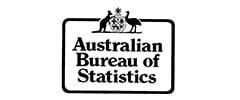The impact of under performers
When a team member is under performing, they have an impact across the team. Without a doubt, on the manager, the team and the individual themselves.
The manager spends a disproportionate amount of time managing the person and their challenges. Consequently, there’s little time for doing your own job and focussing on the rest of the team. It’s stressful.
Moreover, it drags the team down. Additionally, they have to pick up the slack and it can lead to feelings of resentment.
The individual themselves often feels de-motivated. Thinking ‘what’s the point?’ and ‘nothing is ever good enough’. Unfortunately the longer the under performance continues, the worse the situation becomes.
What does the research say?
What makes the situation even more troublesome is that many employees think that performance conversations are not particularly useful. In fact, research from Gallup (www.gallup.com) suggests that:
- only 26% of employees strongly agree that the feedback they get helps them do better work; and
- only 14.5% of managers strongly agree that they are effective at giving feedback.
With this in mind we need a new approach to address what is a very complex situation. And without a doubt a coaching approach can be beneficial.
Key steps to address under performance
Companies need to move away from ‘old style’ performance conversations to address under performance. And move to ‘coaching-based’ performance conversations. To make this shift the key steps are:
- Move away from annual or infrequent performance conversations. Moving towards more frequent coaching conversations, where the focus is on: what is we are trying to achieve? What is the progress? What assistance do you need to achieve your goals?
- Shift from the manager writing the plan. Rather towards the staff member being responsible and accountable for their own plan.
- Change from performance plans being a response to poor performance and a remedial activity; and towards those plans being an every-day way of tracking progress, success and opportunities for improvement.
The right mind-set for performance conversations
As we discuss in our Coaching for Performance Conversations program, the right mind-set is important when it comes to approaching under performers. Some managers go into the performance conversation with the mindset of ‘I have to fix this person’ or ‘I have to address their under-performance’.
It will come as no surprise that a conversation that is focussed on weaknesses has been proven to have a negative impact on the individual. In the short term, we see further loss of engagement. Furthermore, in the longer term performance decreases as people start to take unplanned leave, sick leave or go on the job hunt.
Taking the coaching approach
Alternatively, the coaching approach is to think about ‘what am I trying to achieve through this conversation?’ and ‘what is it that I want?’.
A good way of answering this question is to think about a ‘shift’, ‘lift’, ‘change’ in performance.
In our Certificate IV in Workplace and Business Coaching (10834NAT) we dedicate a whole module to performance conversations and a module to effective feedback.
But for now, consider two alternative starts to a performance conversation:
- We need to discuss your under performance.
- I want to talk about how we can work together to shift your performance…from where it is now, to where we need it to be.
The first statement is likely to cause the person you are speaking to, to take a sharp breath in, even hold their breath. They may be trying to listen to you. But the average person is going to start to go into ‘fight, flight or freeze’ mode. Depending the tone of the conversation, they may feel the need to start to justify themselves, make excuses or even move the blame to others. The performance conversation sets off on the wrong path and is likely to continue down that path.
In contrast, the second statement is a lot wordier. You can fix it to make it more comfortable. It’s still a difficult performance conversation. But the key with this statement is that it is 100% less likely to evoke defensiveness from a team member. It is about working together. To move from where the person is now, to where they need to be.
How to make conversations easier
A conversation with someone who needs to change their performance become easier over time if managers foster a culture of openness, trust and giving and receiving feedback. A focus on continuous improvement, rather than once-off conversations, means that manager can address changes or shifts that are required in the moment and ensure a spirit of working together to achieve the team and organisational objectives.
**Please note, any performance conversations need to be conducted in line with your organisation’s policies and procedures. This article should be considered as general commentary, rather than a fixed guideline or something that occurs outside of formal processes and procedures.































